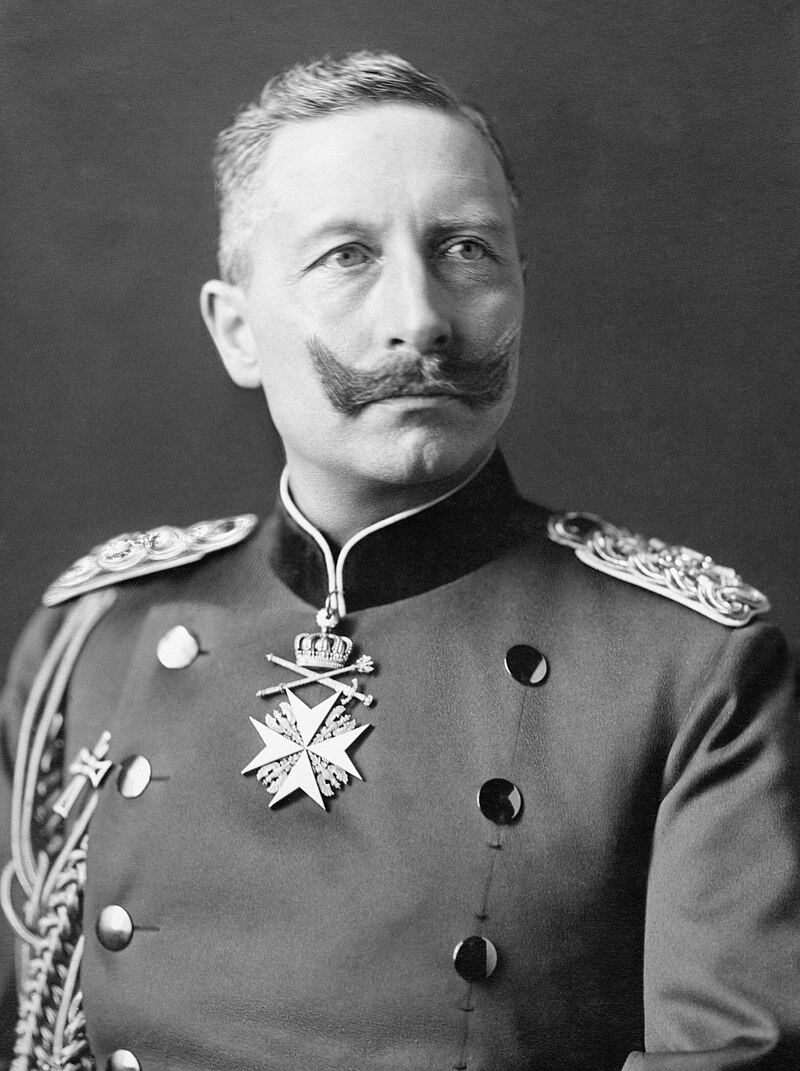
Wilhelm II
Wilhelm II, the last German Emperor and King of Prussia, reigned from 1888 until his abdication in 1918 during World War I. Known for his militaristic and nationalistic policies, he played a significant role in the events leading up to the war. Wilhelm II's infamous 'Hunnenrede' in 1900 called for brutal measures against Chinese rebels, drawing a historical parallel to the Huns and cementing a perception of Germans as barbaric invaders during the war. His actions and rhetoric contributed to the intense propaganda that framed Germany's role in the conflict, influencing public sentiment in the Allied nations.
Born on Jan 27, 1859 (167 years old)
Global Media Ratings
Countries Mentioned
No country-level mention data available.
Interactive World Map
Each country's color is based on "Mentions" from the table above.
Recent Mentions
 Germany:
Wilhelm II, as the German Emperor, sought to challenge British naval supremacy.
4
Germany:
Wilhelm II, as the German Emperor, sought to challenge British naval supremacy.
4
 Iraq:
Wilhelm II opposed the awarding of a medal to Käthe Kollwitz, stating that such honors should only be given to respectable men.
2
Iraq:
Wilhelm II opposed the awarding of a medal to Käthe Kollwitz, stating that such honors should only be given to respectable men.
2
 Luxembourg:
Wilhelm II was the last German Emperor and King of Prussia who abdicated following Germany's defeat in World War I.
5
Luxembourg:
Wilhelm II was the last German Emperor and King of Prussia who abdicated following Germany's defeat in World War I.
5
 Iraq:
Wilhelm II opposed the awarding of a medal to Käthe Kollwitz, stating that such honors should only be given to respectable men.
2
Iraq:
Wilhelm II opposed the awarding of a medal to Käthe Kollwitz, stating that such honors should only be given to respectable men.
2
 Greece:
Wilhelm II visited Istanbul in 1898 and had public meetings with Theodor Herzl.
5
Greece:
Wilhelm II visited Istanbul in 1898 and had public meetings with Theodor Herzl.
5
 Luxembourg:
The Dutch-Luxembourgish ruler Wilhelm II felt compelled to respond to the demands of the revolutionaries.
5
Luxembourg:
The Dutch-Luxembourgish ruler Wilhelm II felt compelled to respond to the demands of the revolutionaries.
5
 Switzerland:
Wilhelm II gave a speech in Bremerhaven that was soon referred to as the 'Hunnenrede'.
3
Switzerland:
Wilhelm II gave a speech in Bremerhaven that was soon referred to as the 'Hunnenrede'.
3
 Romania:
Wilhelm II was the German Emperor who favored August von Mackensen and promoted him throughout his military career.
7
Romania:
Wilhelm II was the German Emperor who favored August von Mackensen and promoted him throughout his military career.
7
 Romania:
Wilhelm II was the German Emperor who emotionally reacted to the assassination of Franz Ferdinand by offering unconditional military support to Austria-Hungary.
4
Romania:
Wilhelm II was the German Emperor who emotionally reacted to the assassination of Franz Ferdinand by offering unconditional military support to Austria-Hungary.
4
 Switzerland:
Wilhelm II referred to Graf Zeppelin as 'the stupidest of all South Germans'.
3
Switzerland:
Wilhelm II referred to Graf Zeppelin as 'the stupidest of all South Germans'.
3